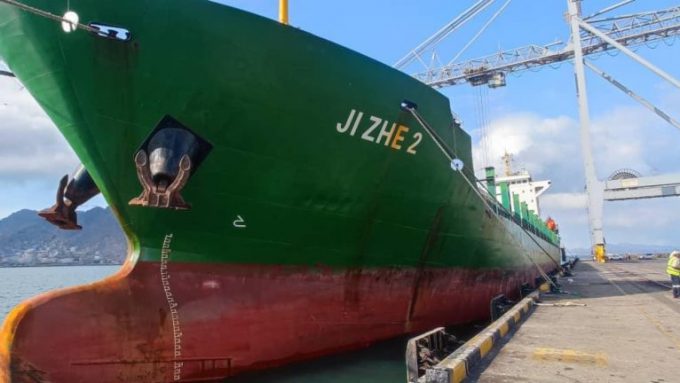Supply chain disruption costly for shippers, but helps build resilience, says Maersk
The regularity of ‘black swan’ events has meant unexpected costs for European shippers, according to ...
XPO: BUILDING BLOCKSHLAG: BIG ORDERLINE: REACTIONLINE: EXPENSES AND OPERATING LEVERAGELINE: PIPELINE OF DEALS LINE: DEMAND PATTERNS LINE: LANDSCAPELINE: CONF CALL STARTSDSV: UNTOUCHABLEEXPD: NOT AS BULLISH AS PREVIOUSLYFWRD: SPECULATIVE RALLY MAERSK: INTEGRATED LOGISTICS WIN MAERSK: TRUMP TRADEKNIN: THE SLIDELINE: DEBUT AAPL: ASIA CAPEXDHL: THE HANGOVERXPO: ELECTION DAY RALLY
XPO: BUILDING BLOCKSHLAG: BIG ORDERLINE: REACTIONLINE: EXPENSES AND OPERATING LEVERAGELINE: PIPELINE OF DEALS LINE: DEMAND PATTERNS LINE: LANDSCAPELINE: CONF CALL STARTSDSV: UNTOUCHABLEEXPD: NOT AS BULLISH AS PREVIOUSLYFWRD: SPECULATIVE RALLY MAERSK: INTEGRATED LOGISTICS WIN MAERSK: TRUMP TRADEKNIN: THE SLIDELINE: DEBUT AAPL: ASIA CAPEXDHL: THE HANGOVERXPO: ELECTION DAY RALLY

Singapore-based NVOCC Summit Shipping has started its own liner operation, the latest opportunist to launch a service to the Red Sea.
Its JEA-ADE-JIB service links Aden, Djibouti and Jebel Ali, using the 713 teu chartered Ji Zhe 2.
The Loadstar understands Summit took over the Ji Zhe 2 from Peak Shipping, a privately owned Chinese line, which had operated the vessel on its China-Yemen Express service that it terminated in January.
Summit, said by market sources to be closely linked to China’s Xiamen Port Group, provided feeder services covering China, South Korea, South-east Asia and South Asia, purchasing slots from operators like Bengal Tiger Line and X-Press Feeders.
Meanwhile, also taking advantage of the Red Sea situation is China United Lines (CULines), which had refocused on its intra-Asia lanes after terminating its long-haul services with the end of the Covid-19-fuelled boom.
Now it has turned its ad hoc China-Red Sea sailings into a permanent offering with the Red Sea Express (REX) service launched on 9 March, offering a six-week rotation of Ningbo-Nansha-Chiwan-Port Klang-Jeddah-Sokhna-Port Klang-Ningbo, using three 1,900-2,700 teu ships.
Despite the risk of being attacked by Houthi rebels in the Red Sea, some niche operators are continuing transits through the Suez Canal. Mainstream operators having rerouted vessels around the Cape of Good Hope opened a gap for opportunistic newcomers to enter the market, charging lucrative rates to compensate for the risks.
In January, Singapore-incorporated Sea Legend Shipping started Red Sea services, and claimed to have the Chinese navy escorting its vessels. It is owned by a British Virgin Islands-registered entity, Sea World Legend Holdings, obscuring its ownership.
Meanwhile, box lines have been starting, or revamping, services to tap into India’s economic growth.
From 30 March, Oman’s Asyad Line is extending its Far East Express One service to China, calling at Mundra, Hazira, Nhava Sheva, Haiphong, Shekou, Laem Chabang, Port Klang and Mundra.
And from 6 April, Taiwan’s Evergreen will start a Red Sea-Gulf-India service by purchasing slots on a service operated jointly by Unifeeder, Wan Hai and X-Press Feeders. Originally a West India-Persian Gulf service started by Unifeeder and Wan Hai, the loop stretched into the Red Sea with the participation of Wan Hai in January.
Comment on this article